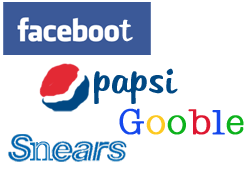
I find it really hard to comprehend how some people imagine that something simple like meta tags will make a real difference in their website ranking in search engines. It is as if they think they have really out-smarted all the technicians over at Google, Yahoo, Bing, and etcetera, with this cool trick called a meta keyword tag.
Why can’t the meta keywords myth just die? There was a day when a good SEO could outsmart a search engine with tricky little tactics like this, but how can somebody in 2010 really think that there is such a simple way to outrank billions of other pages vying for search engine rankings? Do these people really think they were the first on the scene and they have uncovered the golden key to the Internet? Come on … anybody smart enough to tie their shoe should be able to reason this out with just one little “duh, I guess this kind of makes sense” moment of reality-checking.
I still hear people talk about meta keywords from time to time, and more often than I like. I guess maybe it is just some people’s way of trying to sound like an expert. Maybe they will sound like they did their homework if they can start a discussion of meta tags when they call the SEO. Seriously, is that what people think my job is as a search engine optimizer … to strike up some good keywords and feed them into the back door of Google? That is either totally absurd, or so brilliant that I want to choke myself for being so dumb I didn’t think of this sooner. Perhaps all I really needed to do all this time was add some meta tags to my websites. Gosh, I have wasted so many years of my life creating useful and amazing website content that people link to and share with others. I should be punished for being so slow to catch on to this one simple fix that could have made me the king of Internet search. I guess maybe all of the SEO lessons that I have authored over the past decade and a half are useless.
OK, enough of the sarcasm … I had my fun. The fact is that although you will still see sites using the meta keywords tag, it is as my grandpappy would say: “about as useful as teets on a boar hog.” For those of you big city folks, that means boobs on a boy pig. They don’t feed the piglets, and meta keywords will not feed you, either.
Google’s Matt Cutts on Meta Keywords
There has been so much speculation of the usefulness of meta keywords that if we were sitting in a bar, I would curse like an angry sailor to make my point. My wife says that makes me sound less intelligent, and since we are not having beers together, I will just give you good solid references. Here is what Matt Cutts from Google has to say on the topic of meta keywords. In his words, “we don’t use that information in our ranking, even the least little bit.”
Here is another interesting article that I found from Search Engine Land about meta keywords.
When Meta Keywords Mattered
There was a time when the keywords meta tag mattered to search engines. It was designed to help search engines understand the overall emphasis of the page. That was a great idea to make the Internet easier for search engines to index all of the Web’s content. A few search engines even chose to use the information, but that only lasted just a short time before people started trying to attract searches for Brittany Spears and Madonna to their completely unrelated website about treating bedsores. It never really worked all that great, because above all, search engines have always read the visible text of websites, and the links pointing to the website. By the way, invisible text (text that is the same color as the page background) is also a huge mistake that a few idiots still think is a good idea, but that is another blog post.
If you really think that something so easy as a meta keywords tag is going to drive traffic to your website, ask yourself how logical that really sounds. If some slick talking SEO somewhere convinced you that meta keywords will help, take your money to the grocery store now, before that slick talker takes all your money and leaves you hungry.
Which Meta Tags Matter?
There are a couple meta tags that actually matter, so don’t just assume that all meta tags are totally useless. The meta description tag is quite important, and is often used to display a description of the page in search engines (unless there is more relevant on-page content to display). The “robots meta tag” will direct search engines to follow links on the page or not, and whether to index the page or not. This is also why we have a “robots.txt” file. The “Content-Type” meta tag tells computers the character encoding of the page. Yes, there is useful meta data in a web page, just as with any other computer file.
While I wonder why the keywords meta tag myths still circulate, I think it must just be because people want to sound smarter than they really are about the SEO industry. If you can make it sound like some really advanced programming skill is involved, it must be more important. I mean (in a booming voice) “meta keywords tag” sure does sound “techie” and important, right? So why do they even exist if they are not used by search engines? I think it is simply because of habits and lingering myths that most of the meta keywords tags on the Internet still exist. After all, there are still some meta keywords right here on my blog. I guess mostly because I have been too lazy to remove them and they don’t actually hurt anything. However, if you look at the source code on this page, you will not see a keywords meta tag, but I assure you it will still rank really nicely in search engine results.
If you still just must decorate the behind-the-scenes head section of your website, here is a meta tag generator that I wrote sometime back in 2001 or earlier. I do not know an exact date off hand, but I was able to find it in the Internet archive at archive.org from Jan 2002 (hilarious archived version). Maybe you will find it to be a cool tool, but just don’t count on those meta keywords to feed your family.



